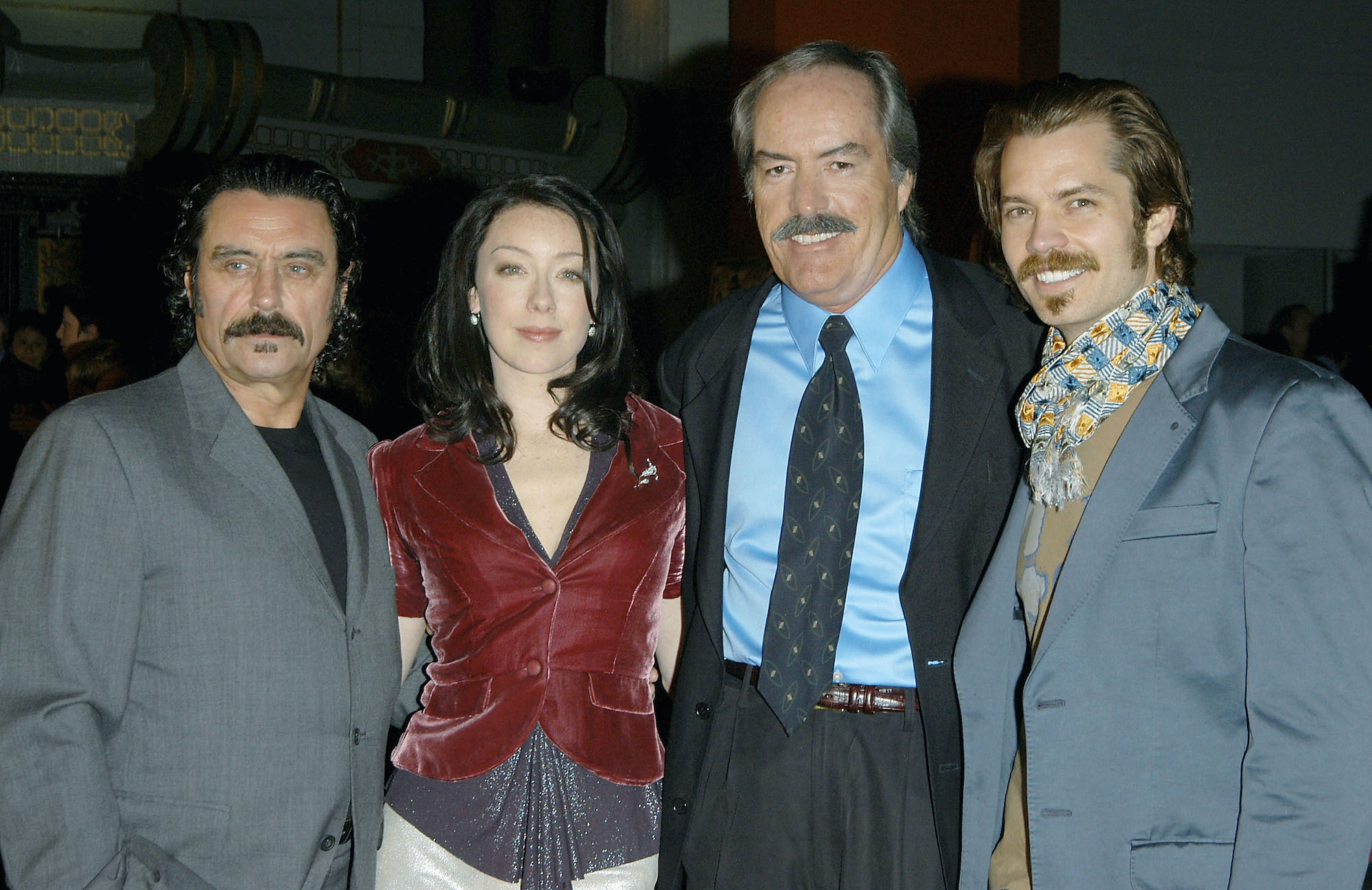Why Did HBO Cancel ‘Deadwood’?
Home Box Office, better known as HBO, is one of the original cable television providers in a now-crowded market. Established in 1972 by Time, Inc., the network became known for airing commercial-free movies.
Today, the premium cable service offers groundbreaking original programming. Successful HBO dramatic series such as The Sopranos and Game of Throneshavepushed the envelope with provocative nudity and adult language.
Deadwood was a gritty western that became an influential series, with all the necessary elements for bringing great storytelling to the small-screen. When the popular dramatic series was suddenly taken off the air, fans were left frustrated and confused.

A rough around the edges classic western tale
Set in 1876, the HBO series Deadwood brought to life historical characters such as Wyatt Earp, Calamity Jane, E.B. Farnum, and George Hearst. The series brilliantly allowed real-life events to influence its fictional storyline. Producer David Milch recreated the town of Deadwood, South Dakota, using actual documents and diaries for authenticity.
Revolving around the biggest gold strike in U.S. History, the story follows the lewd and mischievous behavior of those seeking riches. HBO describes the characters as “a throng of restless misfits,” who are drawn to an “outlaw settlement in the Black Hills of South Dakota.” The Deadwood series “features a cast of surly inhabitants led by actor Timothy Olyphant and Ian McShane.”
IMDb reports the critically-acclaimed series received 85 awards nominations, winning 28, eight being Primetime Emmy Awards. In 2004, the show received an Emmy for Outstanding Directing and Sound Editing. In 2005, Deadwood received a total of five Emmy Awards for Outstanding Art Direction, Cinematography, Costumes, Hairstyling, and Makeup for a Drama Series. It won again in 2007 for Outstanding Makeup.
‘Deadwood’ had a cult following
Deadwood ran for three seasons from 2004 to 2006. With more viewers than ever taking to binge-watching because of the coronavirus pandemic, the series has experienced a resurgence. Loyal fans are re-watching Deadwood in its entirety, while new viewers are discovering the appeal of a show canceled too soon.
When the series unexpectedly ended, faithful followers of the Wild West drama were shocked and disappointed. The hooligans of their favorite gold-seeking characters came to an abrupt end, and angry fans called for HBO customers to cancel their subscriptions.
It took 13 years for the cult-like following to finally find out what happened in the dusty South Dakota town. In 2019, the film Deadwood: The Movie debuted, jumping 10 years into the future, giving loyal fans the closure they so desperately wanted.
Why was ‘Deadwood’ canceled?
Despite the immense success of Deadwood, it unexpectedly ended at the end of the third season. HBO decided not to pick up the presumably final season after Milch demanded 12 episodes. Money played a major role in the decision, as a production budget of $4.5 million per episode made for one of HBO’s most expensive ventures.
TV Series Finale reported that studio executives wanted Milch to focus on his next project, John From Cincinnati. HBO “offered to greenlight a small six-episode order of the groundbreaking drama but Milch, who has had bad experiences with so-called ‘short order renewals,’ rejected the offer.”
At the time, Milch explained, “I am deeply disappointed by the way things turned out. (HBO) felt like they had to make a choice, and this is how they chose. I know they tried to work it out, and I tried to work it out with them.”
Screen Rant explained, “the most pressing reason for the cancellation was likely HBO’s brand overhaul, which happened around the mid-2000s. As weird as it sounds, HBO was really steering towards prestige television, and the slow-paced Western, though well-received, wasn’t cut out for the Home Box Office anymore.”


